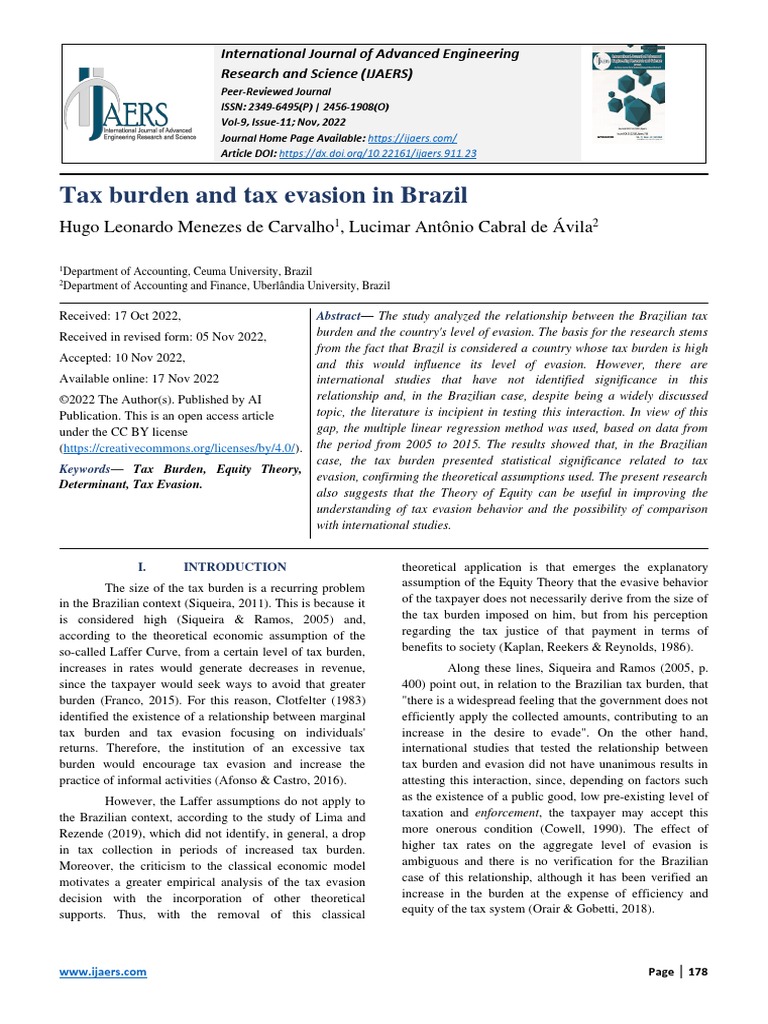Brazil's corporate tax identification system, known as CNPJ (Cadastro Nacional da Pessoa Jurídica), is set to undergo a significant change by July 2026. The system will transition from a purely numerical format to an alphanumeric structure, requiring businesses and institutions to adapt their systems and databases accordingly. This shift aims to modernize the CNPJ and potentially enhance its functionality and security.
Impending Alphanumeric Shift for CNPJ System

The Receita Federal, Brazil's federal revenue service, has announced that the current numeric CNPJ format will be updated to include both letters and numbers by July 2026. This transition necessitates a comprehensive overhaul of existing databases and software applications that rely on the CNPJ for identification and verification purposes. Companies, financial institutions, and government agencies that utilize the CNPJ system must begin planning and implementing the necessary upgrades to ensure compatibility with the new alphanumeric format. This change marks a significant modernization effort intended to improve the efficiency and security of Brazil's corporate identification system.
Understanding the Implications for Businesses

The move to an alphanumeric CNPJ system presents several challenges and opportunities for businesses operating in Brazil. First and foremost, businesses must assess the impact of the change on their existing IT infrastructure. This includes evaluating and updating accounting software, enterprise resource planning (ERP) systems, customer relationship management (CRM) platforms, and any other applications that store or process CNPJ data. Failure to adapt to the new format could result in data errors, system malfunctions, and disruptions to business operations.
- System Updates: Implementing the necessary software updates and modifications will likely require significant investment in IT resources and expertise. Businesses may need to engage with software vendors, consultants, or internal IT teams to ensure a smooth transition.
- Data Migration: Migrating existing CNPJ data to the new alphanumeric format will be a critical task. This process must be carefully planned and executed to avoid data loss or corruption.
- Employee Training: Employees who regularly work with CNPJ data will need to be trained on the new format and its implications for their daily tasks.
However, the transition to an alphanumeric CNPJ system also presents opportunities for businesses to improve their data management practices and enhance their overall operational efficiency. By modernizing their IT systems, businesses can potentially streamline processes, reduce errors, and improve decision-making.
Receita Federal Releases Fifth Batch of Income Tax Refunds for 2025

The Receita Federal has released the fifth batch of income tax refunds (Imposto de Renda da Pessoa Física - IRPF) for the 2025 fiscal year. This latest round of refunds encompasses individuals who submitted their tax returns outside the regular deadline or had pending issues that have since been resolved. It also includes residual refunds from prior tax years. A total of 387,277 taxpayers will receive a combined sum of R$1,035,303,774 (approximately $200 million USD). The payments were distributed based on specific priority groups.
Allocation of Refunds to Priority Groups

The distribution of these refunds prioritized specific segments of the population, reflecting the government's commitment to assisting vulnerable groups. The allocation breakdown is as follows:
- Taxpayers Using Pre-filled Returns and/or Choosing PIX Refund: 234,920 taxpayers who opted for the convenience of pre-filled tax returns or selected PIX (Brazil's instant payment system) as their refund method received their payments.
- Senior Citizens (Ages 60-79): 66,637 senior citizens aged between 60 and 79 years were prioritized for receiving their refunds.
- Non-Priority Taxpayers: 46,222 refunds were allocated to taxpayers who did not fall into any of the priority categories.
- Teachers: 16,926 refunds were designated for taxpayers whose primary source of income is from teaching.
- Elderly Taxpayers (Over 80 Years): 15,604 elderly taxpayers over the age of 80 were given priority for their refunds.
- Individuals with Disabilities or Serious Illnesses: 6,968 refunds were allocated to taxpayers with physical or mental disabilities, or those suffering from serious illnesses.
This structured approach ensures that those most in need, including the elderly, teachers, and individuals with health challenges, receive their refunds promptly.
How to Check Your Refund Status

Taxpayers can easily check the status of their income tax refund through the Receita Federal's website. The process involves navigating to the "Meu Imposto de Renda" (My Income Tax) section and clicking on the "Consultar a Restituição" (Check Refund) button. Alternatively, taxpayers can utilize the Receita Federal's mobile application, available for tablets and smartphones, to access the same information.
Payments are scheduled to be deposited throughout the day on September 30th, directly into the bank account or via the PIX CPF key provided in the income tax return. It is crucial to ensure that the account details provided are accurate to avoid any delays or issues with the refund process.
Addressing Potential Issues and Unclaimed Refunds

If a taxpayer does not find their name on the refund list, they should access the Centro Virtual de Atendimento ao Contribuinte (e-CAC) and review their tax return statement. If any discrepancies or pending issues are identified, taxpayers can submit an amended return and await inclusion in subsequent refund batches.
In cases where the refund cannot be deposited into the designated account – for example, due to an inactive account – the funds will remain available for redemption at Banco do Brasil for up to one year. Taxpayers can schedule the credit to any bank account in their name through the Banco do Brasil Portal or by contacting the bank's customer service center.
Should the refund remain unclaimed after one year, taxpayers must request the funds through the e-CAC portal. This involves accessing the "Declarações e Demonstrativos" (Declarations and Statements) menu, clicking on "Meu Imposto de Renda" (My Income Tax), and then selecting "Solicitar restituição não resgatada na rede bancária" (Request Unclaimed Refund at the Banking Network).
Receita Federal Denounces Fake News Targeting Adults Living with Parents

The Receita Federal has issued a strong warning against a false news report circulating on social media. This report falsely claims that the agency will begin notifying adults who live with their parents regarding alleged new tax obligations. The fabricated information links this supposed measure to the creation of the Cadastro Imobiliário Brasileiro (Brazilian Real Estate Registry). The Receita Federal emphatically clarifies that the Cadastro Imobiliário Brasileiro has absolutely no connection to taxing individuals who reside with their families.
Clarifying the Misinformation and Protecting Taxpayers

The spread of this misinformation has caused unnecessary anxiety and confusion among Brazilian taxpayers. The Receita Federal urges citizens to exercise caution when encountering such reports on social media and to verify information from reliable sources, such as the agency's official website and press releases. The agency is committed to combating the spread of fake news and protecting taxpayers from falling victim to scams or misinformation campaigns. The Receita Federal reiterated that there are no new regulations targeting adults living with their parents and that the Cadastro Imobiliário Brasileiro is solely focused on real estate registration, not income taxation related to familial living arrangements.


No comments:
Post a Comment